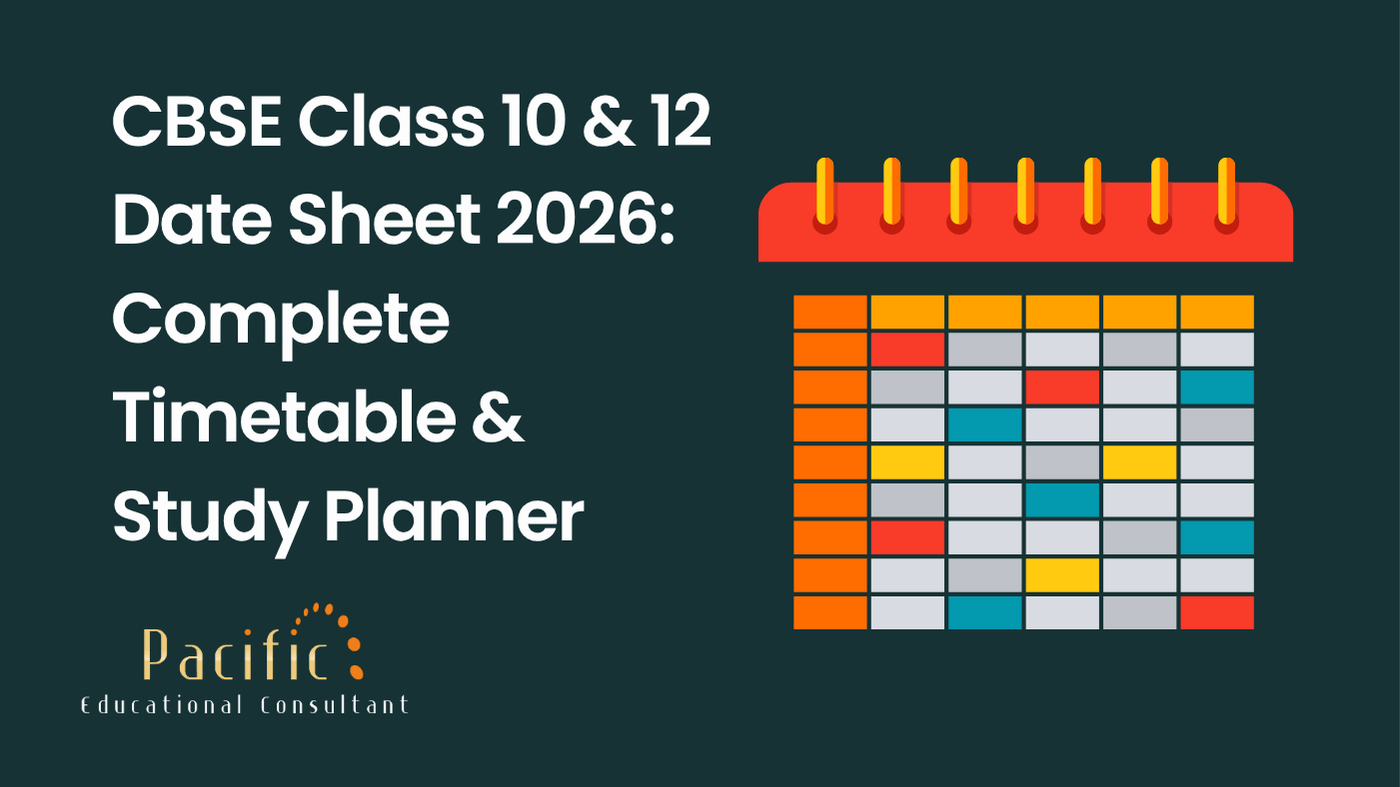


In the fast-evolving digital world, Information Technology is the backbone of innovation, connectivity, and data management. One of the most sought-after undergraduate degrees in this field is BE IT, which stands for Bachelor of Engineering in Information Technology.
This 4-year program equips students with both engineering principles and computer technology skills to design, build, and maintain intelligent systems. Let’s explore every essential aspect of this course — from eligibility and admission to career growth and salary prospects.
To pursue BE IT, candidates must meet the following criteria:
Completion of 10+2 (Class 12) from a recognized board with Physics, Chemistry, and Mathematics as compulsory subjects.
Minimum aggregate marks of 50–60% in the qualifying exam (varies by institute).
Reserved category students may get a relaxation in marks as per government norms.
Some universities may prefer candidates who studied Computer Science or Information Practices at the school level.
There is generally no upper age limit, but students usually start the course between ages 17 and 20.
Admission to BE IT courses is typically done through two routes — entrance-based and merit-based:
Entrance Exam Route – Candidates appear for national or state-level engineering entrance exams like JEE Main, followed by centralized counselling and seat allotment.
Direct Admission Route – Some private institutions offer admission based on Class 12 merit or their internal test.
Students must research the admission criteria of their preferred universities and register for exams or application forms accordingly.
The application process usually takes place online. Here’s a simple step-by-step guide:
Visit the official website of the desired university or entrance exam portal.
Register and create a candidate profile.
Fill in personal, academic, and contact details carefully.
Upload required documents such as mark sheets, photos, and ID proof.
Pay the application fee through online payment modes.
Submit the form and download the confirmation page for reference.
After submission, candidates must keep checking for updates like admit cards, exam schedules, and counselling dates.
The selection process varies across colleges but typically follows these steps:
Performance Evaluation – Based on entrance exam scores or Class 12 marks.
Merit List Publication – Shortlisted candidates are listed as per rank or marks.
Counselling Round – Choice filling, seat allotment, and verification of documents.
Final Admission – Candidates confirm their seats by paying the admission fee.
Some universities also conduct personal interviews or group discussions to assess communication and analytical skills.
Students aspiring to study BE IT can appear for various national and state-level entrance exams such as:
JEE Main
MHT CET (Maharashtra)
KCET (Karnataka)
WBJEE (West Bengal)
TNEA (Tamil Nadu)
COMEDK UGET
VITEEE
SRMJEEE
Each exam has different eligibility rules and marking schemes, so it’s important to review the official notification before applying.
Here are a few highlights of major entrance exams:
Admission to the best BE Information Technology university in India is mainly through entrance examinations. To get into the top 10 universities for BE Information Technology in India, a candidate should clear the test. Once the purpose and the vision are clear it will be easier to perform better in the entrance examination. In general, the entrance exam has the following pattern:
Here are some of the top institutions offering BE IT programs in India:
Delhi Technological University (DTU), Delhi
Birla Institute of Technology and Science (BITS), Pilani
Vellore Institute of Technology (VIT), Tamil Nadu
SRM Institute of Science and Technology, Chennai
Netaji Subhas University of Technology (NSUT), Delhi
College of Engineering, Pune (COEP)
Manipal Institute of Technology, Manipal
Thapar Institute of Engineering and Technology, Patiala
Lovely Professional University (LPU), Punjab
Chandigarh University, Chandigarh
The course fee depends on the institution’s reputation and location.
Government colleges: ₹ 60,000 – ₹ 1.5 lakh per year
Private universities: ₹ 1.5 – ₹ 3 lakh per year
Elite private institutions (like BITS or VIT): ₹ 4 – ₹ 6 lakh per year
Additional costs may include hostel charges, exam fees, and learning resources. Many universities also offer scholarships to meritorious or economically weaker students.
The BE IT syllabus combines engineering fundamentals with information technology concepts. Typical subjects include:
Core Subjects
Mathematics for Engineers
Computer Programming (C, C++, Java, Python)
Data Structures and Algorithms
Digital Electronics
Database Management Systems
Operating Systems
Computer Networks
Software Engineering
Web Technologies
Cloud Computing
Artificial Intelligence and Machine Learning
Labs and Projects
Programming labs
Networking and hardware labs
Mini and major projects
Industrial internship in the final year
This curriculum ensures both technical depth and practical exposure.
BE IT is a smart choice for students passionate about technology because:
IT professionals are in constant demand across industries.
The field offers high starting salaries and long-term growth.
Students gain versatile skills applicable to multiple domains.
Opportunities exist in both public and private sectors, and even entrepreneurship.
The course builds a foundation for further study like MTech, MBA, or overseas education.
BE IT is an engineering-focused study of computer systems, software, and networks. The course teaches students how to develop, integrate, and secure information systems used in businesses, government, and modern digital ecosystems.
Students learn to combine theoretical knowledge with hands-on technical training to solve real-world IT problems efficiently.
A BE IT graduate can work in a variety of technical and managerial roles, such as:
Software Engineer or Developer
Systems Analyst
Database Administrator
Network Engineer
Cybersecurity Analyst
Cloud Architect
IT Consultant
Project Manager
Data Analyst
Web or App Developer
These professionals are employed in sectors like IT services, finance, education, healthcare, e-commerce, and government.
The IT industry is expanding globally, creating continuous job opportunities.
Engineers can transition into specialized fields such as AI, Data Science, or Cybersecurity.
IT careers offer global exposure and the flexibility of remote work.
There is significant scope for innovation and entrepreneurship.
Graduates enjoy fast career growth and competitive pay packages.
Strengthen your fundamentals in Mathematics and Physics.
Practice programming languages early to stay ahead in coding.
Focus on time management and accuracy for entrance exams.
Take online courses in emerging technologies like AI, Data Analytics, and Cloud.
Stay consistent and join test series for competitive exams.
During the course, engage in internships, hackathons, and projects to gain practical skills.
After completing BE IT, students can pursue:
MTech/MSc in Information Technology or Computer Science
MBA in IT Management or Business Analytics
Postgraduate certifications in Data Science, Cloud, or Cybersecurity
MS abroad for international exposure and advanced specialization
PhD or research programmes for academic careers
These higher qualifications open doors to leadership, research, and global opportunities.
The average salary of BE IT graduates depends on their college, skill set, and company:
Freshers: ₹ 3.5 – 6 LPA
Mid-level professionals: ₹ 7 – 12 LPA
Experienced engineers / managers: ₹ 15 – 25 LPA or higher
Top recruiters include TCS, Infosys, Wipro, Accenture, Cognizant, Google, Microsoft, and emerging tech startups.
After graduation, students can pursue careers such as:
Software Developer
System Administrator
Database Engineer
Cloud & DevOps Engineer
Cybersecurity Specialist
Data Scientist
Business Analyst
Technical Consultant
Product Manager
Entrepreneur / Startup Founder
The flexibility of this degree ensures job availability in nearly every modern industry.
To stand out in this competitive field, students should focus on:
Strong coding and debugging skills
Analytical thinking and logical reasoning
Knowledge of networks and databases
Problem-solving ability
Team collaboration and communication
Awareness of new technologies like AI, ML, Blockchain
Continuous upskilling through certifications
Professional ethics and adaptability
Global Employability: International degrees are recognized by employers worldwide, offering access to high-paying roles in technology, research, and engineering design.
Industry-Focused Learning: Universities abroad emphasize innovation, research, and project-based learning — helping you gain real-world experience through internships and co-op programs.
Specializations in Demand: Choose cutting-edge fields like Artificial Intelligence, Robotics, Data Science, Cybersecurity, Aerospace, or Renewable Energy.
PR and Work Permit Pathways: Countries like Canada, the UK, Australia, and Germany offer post-study work visas and pathways to permanent residency for skilled graduates.
Higher Earning Potential: Engineering graduates from international universities often earn 2–3× higher salaries compared to domestic graduates.
Software Engineer / Systems Developer
Data Analyst / Cloud Engineer
Civil or Mechanical Design Engineer
Electrical & Electronics Engineer
Artificial Intelligence / Machine Learning Engineer
Project Engineer or Research Associate
United States: Known for innovation and top universities like MIT and Stanford.
Canada: Affordable education with strong job opportunities post-graduation.
UK: Shorter program duration (3 years) and exposure to global industries.
Australia: High employability rates and excellent PR options.
Germany: Low tuition fees and world-class engineering standards.
Want to study Engineering abroad? Get expert guidance from Pacific Educational Consultant — Book your free counselling now!
Pursuing a Bachelor of Engineering in Information Technology is a smart step toward a future powered by innovation, data, and technology. The course not only opens the door to lucrative jobs but also develops critical thinking, creativity, and problem-solving skills essential in the digital era.
If you are passionate about coding, systems, or software—and want to shape the future of technology—then BE IT is the perfect course for you.

Describe a time you enjoyed a free day off work or school – IELTS Cue Card

Bachelor in Business Economics (BBE)

BE IT Full Form: Complete Guide to Eligibility, Syllabus, Fees, and Career Scope

Describe a water sport you would like to try in the future - IELTS Cue Card

Describe a plan that you had to change recently - IELTS Cue Card

CBSE Class 10 & 12 Date Sheet 2026: Complete Timetable & Study Planner

Describe a sport that you really like - IELTS Cue Card

Describe a person who helps to protect the environment - IELTS Cue Card

Describe a live performance you enjoyed watching - IELTS Cue Card

Describe a place with a lot of trees that you would like to visit (e.g. a forest, oasis) - IELTS Cue Card